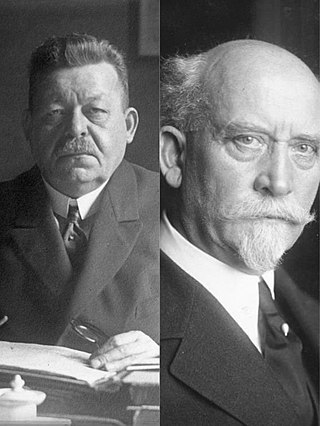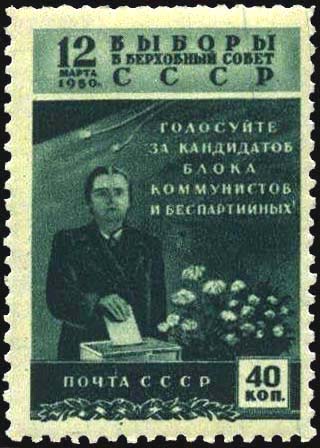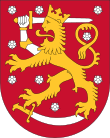
General elections were held in Sweden on 20 September 1998. The Swedish Social Democratic Party remained the largest party in the Riksdag, winning 131 of the 349 seats.

Federal elections were held in Germany on 19 January 1919, although members of the standing army in the east did not vote until 2 February. The elections were the first of the new Weimar Republic, which had been established after World War I and the Revolution of 1918–19, and the first with women's suffrage. The previous constituencies, which heavily overrepresented rural areas, were scrapped, and the elections held using a form of proportional representation. The voting age was also lowered from 25 to 20. Austrian citizens living in Germany were allowed to vote, with German citizens living in Austria being allowed to vote in the February 1919 Constitutional Assembly elections.

Federal elections were held in Germany on 25 January 1907. Despite the Social Democratic Party (SPD) receiving a clear plurality of votes, they were hampered by the unequal constituency sizes that favoured rural seats. As a result, the Centre Party remained the largest party in the Reichstag after winning 101 of the 397 seats, whilst the SPD won only 43. Voter turnout was 84.7%.

A constitutional referendum was held in Russia on 12 December 1993. The new constitution was approved by 58.4% of voters, and came into force on 25 December.

General elections were held in Belgium on 23 May 1965. The result was a victory for the Christian Social Party, which won 77 of the 212 seats in the Chamber of Representatives and 44 of the 106 seats in the Senate. Voter turnout was 91.6%. Elections for the nine provincial councils were also held.
General elections were held in Belgium on 16 November 1919. Although the Belgian Labour Party received the most votes in the Chamber of Representatives elections, the Catholic Party remained the largest party in both the Chamber and the Senate. Voter turnout was 88.5% in the Chamber elections.

A referendum on revoking some medical and tuition fees was held in Hungary on 9 March 2008. The proposals would cancel government reforms which introduced doctor visit fees paid per visitation and medical fees paid per number of days spent in hospital as well as tuition fees in higher education. All three were supported by a majority of voters. Prime Minister Ferenc Gyurcsány stated that the fees would be abolished on 1 April 2008 following the referendum, but that the government had no funds available to replace the income lost for the higher educations institutions and health institutions due to the abolishment of the fees.

The historical trends in voter turnout in the United States presidential elections have been determined by the gradual expansion of voting rights from the initial restriction to white male property owners aged 21 or older in the early years of the country's independence to all citizens aged 18 or older in the mid-20th century. Voter turnout in United States presidential elections has historically been higher than the turnout for midterm elections.

Parliamentary elections were held in Bulgaria on 18 November 1945, the country's first to feature universal suffrage for women. The Bulgarian Agrarian National Union and the Bulgarian Communist Party both won 94 seats. Voter turnout was 84.8%.
A referendum on withdrawing from the League of Nations was held in Germany on 12 November 1933 alongside Reichstag elections. The measure was approved by 95.1% of voters with a turnout of 96.3%. It was the first of a series of referendums held by the German cabinet under Chancellor Adolf Hitler, after the cabinet conferred upon itself the ability to hold referendums on 14 July 1933.
Elections to the Supreme Soviet were held in the Soviet Union on 14 June 1970.
Elections to the seventh Supreme Soviet were held in the Soviet Union on 12 June 1966.

Elections to the Supreme Soviet were held in the Soviet Union on 12 March 1950.
Elections to the Supreme Soviet were held in the Soviet Union on 16 March 1958.
Elections to the Supreme Soviet were held in the Soviet Union on 18 March 1962.

Parliamentary elections were held in Bulgaria between 6 and 27 March 1938, the first after the 1934 coup. The elections were held on a non-partisan basis, with the Bulgarian Agrarian National Union and Bulgarian Communist Party banned. Pro-government candidates won a majority of seats. Voter turnout was 69.5%.
Two-stage presidential elections were held in Finland in 1968. On 15 and 16 January the public elected presidential electors to an electoral college. They in turn elected the President. The result was a victory for Urho Kekkonen, who won on the first ballot. The turnout for the popular vote was 70.2.

A referendum on state pensions was held in Latvia on 13 November 1999. A bill amending the state pension law had been passed by the Saeima on 5 August. It proposed equalising the retirement age of 60 for men and 57.5 for women at 62 by 2006, as well as beginning to withhold pensions from pensioners earning more than double the state pension the following year and withholding payments to all pensioners earning an income by 2005.

Federal elections were held in Switzerland on 27 October 1872. The Radical Left remained the largest group in the National Council.
Parliamentary elections were held in Iceland on 10 September 1908, alongside a referendum on prohibition.











